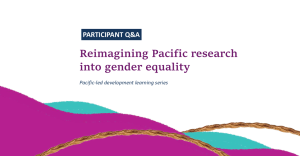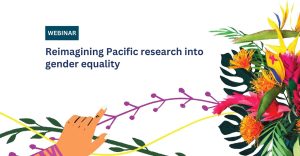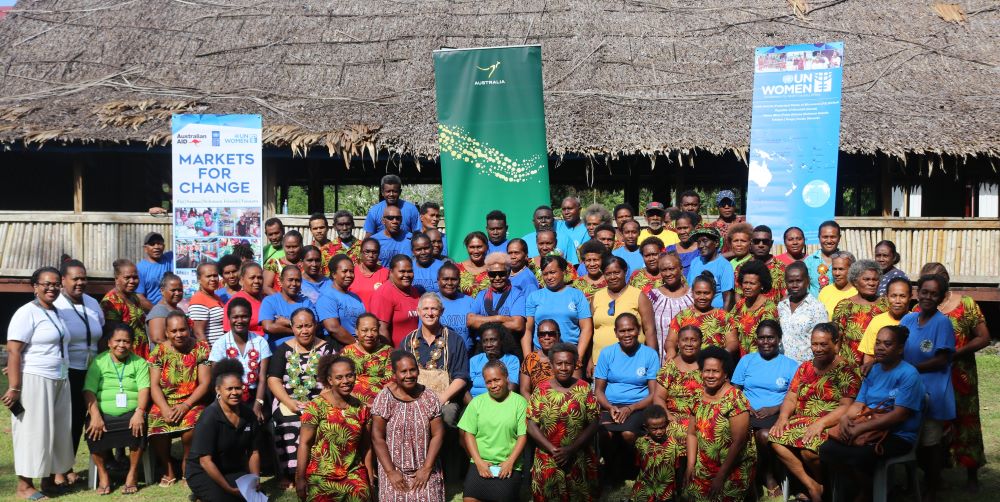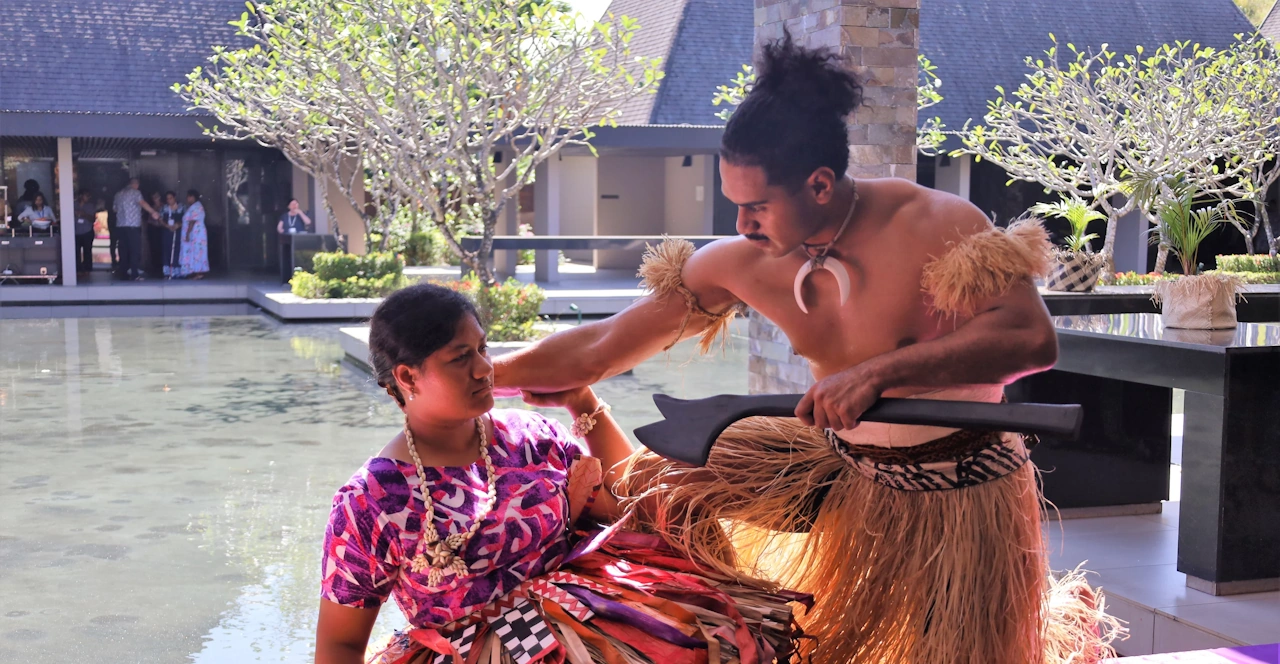Pacific Leaders’ Dialogue Highlights the Need for Women and Men to Lead the 2050 Strategy
16 September 2022On the margins of the 12th Pacific Islands Conference of Leaders (PICL) a high-level women leaders’ dialogue has been held by the Council of Regional Organisations in the Pacific (CROP) Women of the Wave (WOW) network.
The CROP Women of the Wave (WOW) leaders’ dialogue event, titled Amplifying Pacific women’s voice and agency in implementing the 2050 Strategy for the Blue Pacific Continent, aligns with this year’s PICL theme of “Pu‘uhonua: The Pacific Way Forward.”
The Pacific dialogue, held on Monday 12th September, featured panellists discussing key issues including the 2050 Strategy for the Blue Pacific Continent that has come at a time when the region is at an unprecedented juncture in its history. The region is contending with increasingly heightened geostrategic competition and a climate change emergency as it continues to navigate its economic recovery in the wake of the COVID-19 pandemic. Women and girls’ voice and agency are vital in shaping discussions around these and other issues impacting on Pacific regionalism. Panellists discussed how securing spaces to influence regional and national policy discussions and action are essential in shaping future development pathways underpinned by gender equality, social inclusion, economic empowerment and resilience for women and girls in all their diversity and abilities.
In his opening remarks, Mr. Henry Puna, the Secretary-General of the Pacific Islands Forum Secretariat (PIFS) stated that the Pacific Leaders are cognizant of the fact that gender inequality imposes a high personal, social, and economic cost on Pacific people and nations, and that improved gender equality will make a significant contribution to creating a prosperous, stable, and secure Pacific for all current and future generations.
He added, this is evident in the 2050 Strategy for the Blue Pacific Continent, endorsed by Pacific Leaders at the 51st Pacific Islands Forum Leaders Meeting in July 2022, framing the region’s vision for the next 30 years.
The 2050 Strategy is the Pacific’s overarching blueprint to strengthen collective action and deepen regionalism for the next three decades, articulating the region’s long-term vision and values. It is developed and owned by the region to secure and protect the future of the Pacific region and its people, cultures and traditions and resources.
Mereseini Rakuita, the Pacific Community’s (SPC) Principal Strategic Lead – Women and Girls remarked: “The opportunity we have as the Pacific, through the 2050 Strategy, is unique and special. While we look at issues of green growth, rising food, water and energy prices, population growth, resource depletion, climate change, security, and changing disease patterns; gender equality and social inclusion are central to realising the vision of Pacific Leaders for a safe, secure, resilient, inclusive and peaceful Blue Pacific Continent.”
The four panellists included President for East West Centre, Suzanne Vares-Lum; Australian Ambassador for Women and Girls, Christine Clark; SPC Programme Coordinator for the Women in Leadership internal SPC initiative, Julie Bukikun; and Youth Advocate and PNG student at the University of Hawaii, Leoshina Kariha. The Moderator was Dr. Tammy Tabe, Researcher at the East West Centre.
Ms. Julie Bukikun, the Programme Coordinator for the Women in Leadership programme at the Pacific Community (SPC) elaborated on this statement by stating that the opportunity to translate political commitments into action lies in our development is delivered. She said: “At the Pacific Community, we apply a “People Centred Approach”. This means Pacific People are and should be at the centre of development. Within this principle, we work to amplify women’s voices because we believe that supporting women’s leadership roles, creating an environment of respect for gender equality and diversity is key to supporting the development outcomes for our region”
When responding to the question on challenges facing women and young girls, in all their diversity especially in the Pacific, the Australian Ambassador for Women and Girls, Ms. Christine Clark stated that the Pacific unlike other regions of the world. She explained how it is unique and diverse and includes dealing with different levels of complexities and building a shared understanding of what gender equality and social inclusion is. Therefore, the Government of Australia has contributed significantly to support Pacific Island Countries, Territories, CROP agencies, non-state actors and development partners who play a key role in the implementation of the 2050 Strategy particularly in ensuring the integration and mainstreaming of gender and social inclusion across all actions.
President for East West Centre, Ms Suzanne Vares-Lum was invited to reflect on what the Pacific region could achieve in regard to gender equality and social inclusion targets by 2050. She responded by discussing the special needs and issues of indigenous women sees opportunities to advance the roles of women throughout the Pacific. She said: “Involving women is necessary if we want a more peaceful and prosperous world,” Ms Vares-Lum says. “Statistically, the countries where women have access to health care and education and the economy, those nations do well. It is very important to have women’s voices heard.” She then described the intricate culture of the Hawaiian indigenous people and how they value women and their participation in their way of life.
All panellists in the dialogue discussed their lived experience of working on advancement of women including the importance of working with men and involving them as advocates and champions. Ms. Clark discussed how sports can be a gamechanger where positive messages on gender equality and women’s rights can be shared with young people through sports. Ms. Vares-Lum discussed how critical it is to have a shared understanding and Ms. Bukikun gave examples of actual changes and shift in mindset when men begin to understand why supporting gender equality and women’s empowerment can be a real impact.
Closing the WOW Pacific leaders’ dialogue, were the reflections from a Papua New Guinea youth advocate and student at the University of Hawaii Leoshina Kariha. Her message was simple and clear: “I am thankful and honored as a young woman to be given this opportunity to sit and listen to the wealth and knowledge of our women leaders present today. As you speak, I think of my home and my mother and other women in my life. We have overcome so much to be where we are. Women of the Pacific, as much as we are diverse, we are resilient and strong. As a young woman I believe that such dialogue gives hope for us young women to be guided by the experience and wisdom of you all as we look towards 2050”.
BACKGROUND DETAILS:
The Pacific Islands Conference of Leaders (PICL) summit, a council of 20 member governments, was founded in 1980 by Hawaii Gov. George Ariyoshi and Fijian Prime Minister Ratu Sir Kamisese Mara as a forum for Pacific Islands leaders—regardless of political status and without formal intergovernmental protocol—to address shared issues, learn from each other’s experiences, and develop common approaches to policy. The summit also provides opportunities for the leaders to dialogue with US officials and experts.
CROP WOW is an initiative of the Council of Regional Organisations of the Pacific (CROP). The Women of the Wave (WOW) Network is an inclusive, informal and organic network to support CROP women. The WOW Network aims to support and inspire Pacific women in the international governmental organizations of the Pacific to further their career and leadership aspirations, and to expand the connections and opportunities.
The Pacific Islands Development Program (PIDP) conducts a broad range of activities to enhance the quality of life in the Pacific islands. Based at the East-West Center in Honolulu, PIDP was formed in 1980 at the specific request of the region’s leaders to help advance their collective efforts to achieve and sustain equitable social and economic development. PIDP also serves as the Secretariat for the Pacific Islands Conference of Leaders and is a member of the Council of Regional Organisations of the Pacific (CROP).
The East West Center promotes better relations and understanding among the people and nations of the United States, Asia, and the Pacific through cooperative study, research, and dialogue. Established by the US Congress in 1960, the Center serves as a resource for information and analysis on critical issues of common concern, bringing people together to exchange views, build expertise, and develop policy options.
The Pacific Community (SPC) is the principal scientific and technical organisation supporting development in the Pacific region. SPC is proud to be applying our collective capabilities in science, knowledge, and innovation to serve the people of the Pacific in reaching their sustainable development goals and aspirations. In 2021, the Government of Australia supported approximately USD 48 million to implement the Pacific Women Leader Programme which includes the Women in Leadership Programme.
The Pacific Islands Forum is the region’s premier political and economic policy organisation. Founded in 1971, it comprises 18 members: Australia, Cook Islands, Federated States of Micronesia, Fiji, French Polynesia, Kiribati, Nauru, New Caledonia, New Zealand, Niue, Palau, Papua New Guinea, Republic of Marshall Islands, Samoa, Solomon Islands, Tonga, Tuvalu, and Vanuatu.
Blog Category
Blog Post
Division
Human Rights and Social Development



